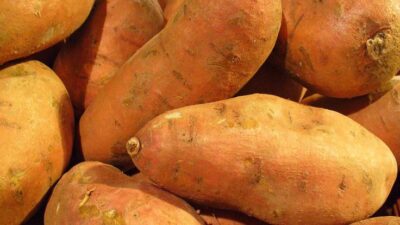Last updated on February 22nd, 2025 at 01:49 am
Introduction
The natural oils in coffee beans play a crucial role in the flavor, aroma, and quality of your cup of coffee. These oils, released during the roasting process, contribute to the complexity of the flavor profile and the overall drinking experience. In this post, we’ll explore the science behind these oils, how they affect coffee, and the factors that influence the release of oils during roasting.
1. The Role of Natural Oils in Coffee Flavor
Natural oils are one of the main contributors to the complex and varied flavors found in coffee. These oils, primarily lipids, contain aromatic compounds that give coffee its distinctive taste and aroma.
- Flavor Impact: The oils help enhance the flavor profile by carrying aroma molecules that we perceive as rich, fruity, floral, or nutty.
- Aroma Contribution: Coffee oils also release aromatic compounds when brewed, which is why fresh coffee has a distinct, enticing aroma.
These oils are especially noticeable in high-quality beans, such as those from Ethiopia, known for its fruity and floral notes, and Brazil, which typically features nutty and chocolatey flavors. If you’re interested in exploring more about coffee aromas and their influence on your brew, check out our Guide to Coffee Roasting.

2. How Roasting Affects the Release of Oils
The release of oils depends on the roasting process. As coffee beans heat up, the oils begin to surface. The higher the roast, the more oils are released.
Key Insights:
- Light Roasts: Lightly roasted beans tend to retain more of their natural oils, which are visible on the surface. These beans are often prized for their more complex flavor profiles and vibrant acidity.
- Medium and Dark Roasts: With longer roasting times, beans lose more of their oils to evaporation, and they may appear more matte. However, dark roasts can still contain oils, which influence the richness and mouthfeel of the coffee.
Roasting also impacts the extraction of these oils during brewing. Light roasts, for example, often have higher acidity, while dark roasts are known for their bold and full-bodied flavors.
3. Factors Influencing Oil Quality in Coffee Beans
Several factors affect the quality and quantity of oils found in coffee beans:
- Bean Type: Arabica beans generally have more complex oils than Robusta beans, which are often more bitter and earthy.
- Growing Conditions: Coffee grown at higher altitudes, like in Colombia or Ethiopia, often has a richer and more complex oil composition.
- Processing Method: Washed or wet-processed coffee tends to have fewer oils than naturally processed beans, which retain more of the natural oils due to the drying method.
These factors all influence the final flavor profile, and understanding them can help you select the right coffee for your business or personal preference. Learn more about the different types of coffee beans in our post on Arabica vs. Robusta Coffee.
4. The Impact of Coffee Oil on Quality
The quality of coffee oils plays a direct role in the overall quality of the brew. Freshly roasted coffee beans, especially those that retain their natural oils, tend to have a smoother and more satisfying taste. On the other hand, beans that have lost their oils due to poor storage or over-roasting can result in stale or flat coffee.
Quality Indicators of Fresh Coffee Oils:
- Flavor Complexity: Rich, well-balanced, and multifaceted flavors.
- Aroma: A fresh, aromatic, and inviting scent that wafts from the brewing cup.
- Mouthfeel: A smooth and creamy texture that coats the palate.
For more insights into preserving coffee quality, check out our article on How to Store Coffee.
5. How to Enhance Your Coffee Experience with Oils
To make the most out of the natural oils in your coffee, consider the following tips:
- Choose Fresh, High-Quality Beans: Look for freshly roasted, specialty-grade beans that preserve their natural oils.
- Store Beans Properly: Store your coffee beans in an airtight container in a cool, dry place to prevent oils from evaporating prematurely.
- Brew Fresh: Use freshly ground beans for the best extraction of oils and flavors. Invest in a good-quality grinder to ensure an even grind and optimal extraction.
Interested in enhancing your brewing technique? Our guide on How to Brew Traditional Vietnamese Coffee can provide you with valuable tips on making the perfect cup.
FAQ Section
1. How do natural oils affect the acidity of coffee?
Natural oils can enhance the complexity of the acidity in coffee. Light roasts, which retain more oils, tend to have a brighter and more pronounced acidity.
2. Why do darker roasts seem less oily?
Darker roasts often lose more oils during the roasting process, which results in less visible oil on the surface of the beans.
3. How can I preserve the oils in my coffee?
To preserve the natural oils in your coffee, store beans in an airtight container and avoid exposing them to light, heat, or moisture.
4. Do all coffee beans have oils?
Yes, all coffee beans contain oils, but the quantity and quality vary depending on factors like the bean type, processing method, and roasting level.
Conclusion
Natural oils are a key element that affects the flavor and quality of roasted coffee beans. These oils influence everything from aroma to taste, and understanding how they work can help you appreciate the nuances of different coffee types. By selecting fresh, high-quality beans and properly storing them, you can enjoy a cup of coffee that showcases the best of these oils.
To learn more about sourcing premium coffee, visit Qualitex Global.









